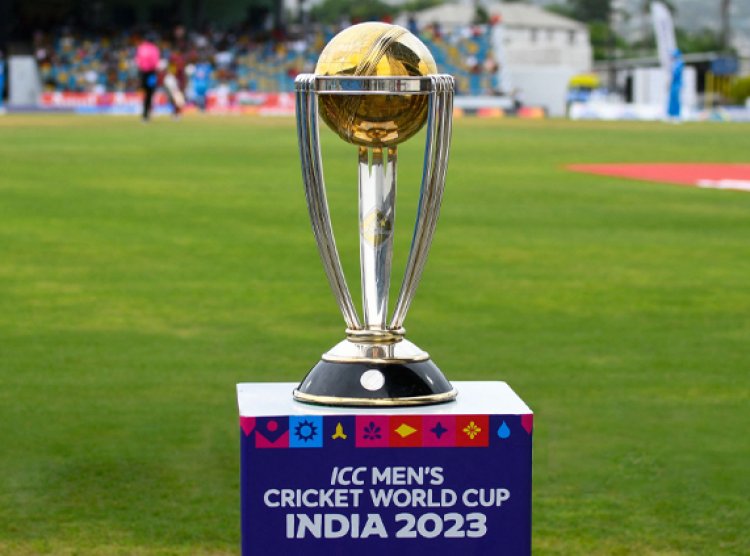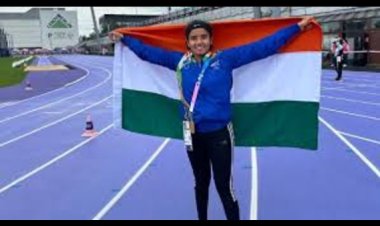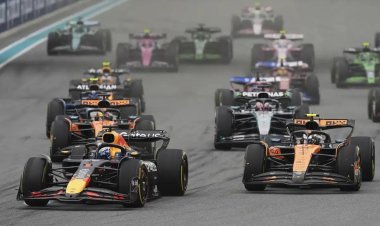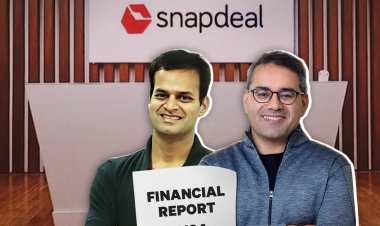ICC World Cup 2023: Team Digital Gains Favor with More Brands
Change in Advertising Landscape: Legacy Brands Opt for Exclusive Digital Presence at ICC World Cup 2023, Shifting Away from Traditional Television Marketing Strategies

The ongoing ICC Cricket World Cup 2023, hosted by India, has witnessed a significant shift in advertising preferences. In a departure from the norm, digital advertising has emerged as the favored platform for brands, both legacy and newcomers, leaving television trailing behind.
Notably, the digital streaming of the World Cup on Disney+ Hotstar has garnered a total of 19 sponsors. Mahindra & Mahindra and Dream11 jointly power this digital streaming. Among the associate sponsors are prominent names such as Booking.com, Surf Excel (HUL), Peter England, Thums Up, Kingfisher Premium Packaged Drinking Water, Diageo India, MRF Tyres, LendingKart, BPCL, Herbalife, Haier Appliances, Pernod Ricard India, AMFI, Google Pay, PhonePe, Amazon, and Parle Biscuits. It's noteworthy that out of these 19 sponsors, 11 have exclusively chosen the digital platform, including esteemed legacy brands like MRF Tyres and Parle Biscuits. Amazon and Haier are two major brands that have opted for a digital-only presence, while PhonePe, HUL, and BPCL have maintained a presence on both television and digital. In contrast, television has garnered a total of 15 sponsors this year.
Industry experts attribute this digital advertising surge during the ICC Cricket World Cup to two primary factors. Firstly, the availability of free streaming on mobile devices, and secondly, the comparatively lower entry costs on the digital platform in contrast to television. Many experts believe that digital advertising offers a more efficient and cost-effective alternative to TV. However, some argue that the choice between the two mediums depends on the specific expectations of the brand.
Mayank Shah, Senior Category Head at Parle Products, explained, "The rates aren't worth looking at on TV. In our experience with the World Cup, digital works better because we can be confident that we are only paying for the number of people who are watching it."
He further elaborated that the World Cup is inherently unpredictable, and if India's performance is not up to par, advertisers might not receive a satisfactory return on their TV investments. Shah emphasized that digital advertising is more efficient as brands only pay for actual viewership, which is in contrast to TV where advertisers pay a substantial amount and hope for the best. The flexibility of digital platforms also aligns with changing viewer habits, with a growing trend of mobile viewing.
However, Coca-Cola, one of the major sponsors of the tournament, decided to maintain a presence on both television and digital. Arnab Roy, Vice President of Marketing at Coca-Cola India and South-West Asia, highlighted the importance of both mediums. While digital offers the advantage of watching matches on-the-go, some audiences still prefer a larger screen for communal viewing with their families.
Several brands, including Booking.com, invest significantly in digital advertising. Last year, Booking.com allocated a substantial portion of its $6 billion global marketing budget to digital advertising, given the platform's historical effectiveness.
In addition to free mobile streaming, another compelling reason for the growing digital advertising trend is the significantly lower cost compared to TV. Digital platforms offer better viewer engagement, making them an appealing choice for advertisers. Moreover, viewers are increasingly gravitating towards digital content, given the widespread availability of free streams and the reluctance to subscribe to expensive television packages.
Vishal Chinchankar, CEO of Madison Digital and Madison Media Alpha, highlighted that brands make their advertising choices based on their targeting strategies. Television offers broader exposure, while digital enables precise targeting. Entry costs also play a role, as digital advertising requires smaller investments compared to television. Chinchankar also pointed out the growing impact of connected TV and its potential for specific market and audience targeting.
While some brands opt for television advertising, several have shifted their focus to digital due to its cost-effectiveness and precise targeting capabilities. The availability of free mobile streaming has further contributed to the rising popularity of digital advertising, expanding its reach to a broader audience base.
In the 2019 edition of the ICC Cricket World Cup, digital co-presenting sponsors included Dream11, Uber Eats, Amazon Pay, and Coca-Cola. Associate sponsors comprised Royal Challenge, Acko, CEAT, and ICICI Lombard, showcasing a diverse mix of both established and emerging brands.

 Sumit Rawat
Sumit Rawat 










